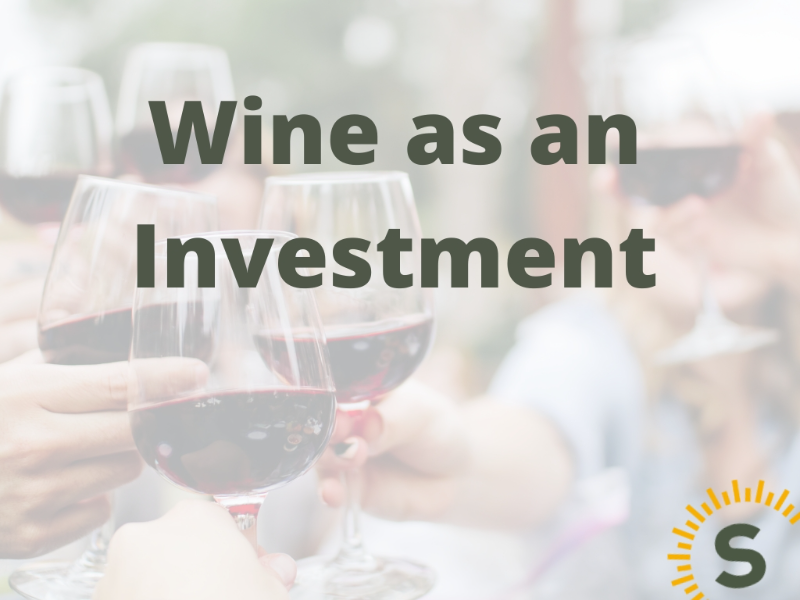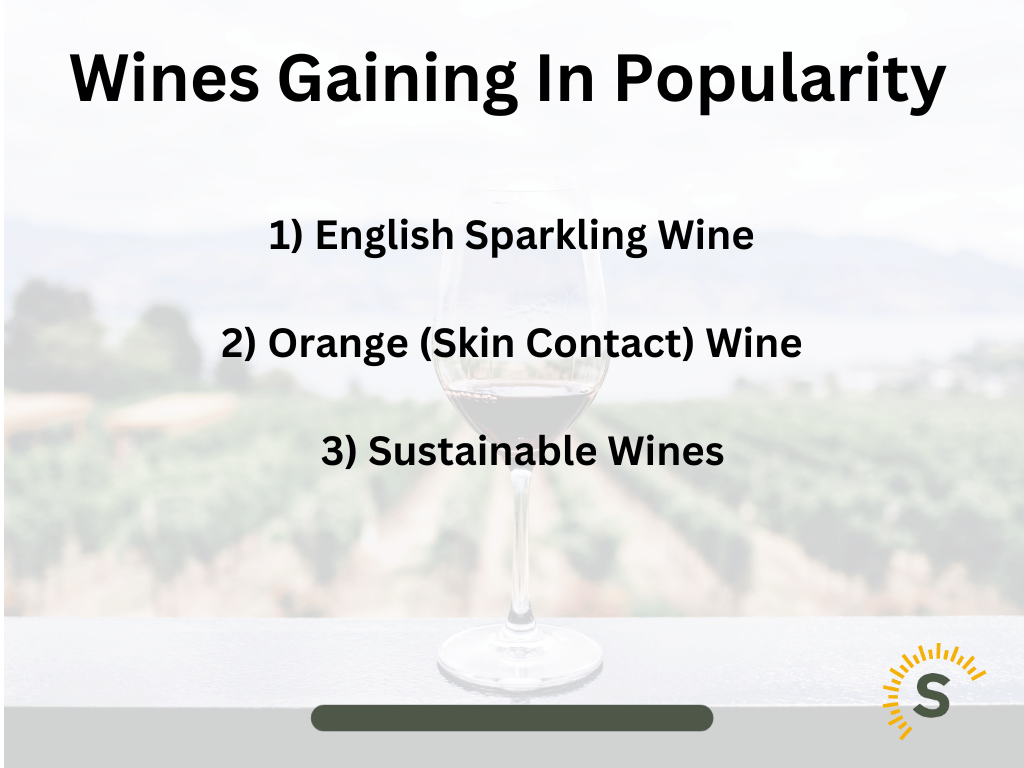
Investing in fine wine has gained popularity in recent years as an alternative investment that offers diversification and potential financial gains. However, before delving into the world of wine investment, it's essential to understand the various aspects involved.
This comprehensive guide will provide you with the necessary knowledge to make informed decisions when considering fine wine as an investment.
Investing in wine involves buying and storing fine wines with the expectation that their value will increase over time. As the wine matures, its rarity and desirability grow. Investors can then sell the bottles at a higher price, benefiting from both enjoyment and potential profit.
Yes, you can invest in wine in the UK. Wine investment involves purchasing bottles or cases of wine with the expectation that their value will increase over time. Some investors buy wine to enjoy its taste while also potentially benefiting from its appreciation in value.
Others invest purely for financial gain, treating wine as an alternative asset class.
Investing in wine can be driven by both a passion for fine wines and the desire to generate financial returns. For wine enthusiasts, investing in wines they enjoy can bring the added benefit of potential value appreciation.
On the other hand, investors solely focused on financial gains may build a collection of wines without intending to consume them. Wine, as an alternative investment, offers diversification to traditional investment vehicles such as stocks and bonds, as its value is generally not tied to economic factors or interest rates.

Investing in fine wine goes beyond simply buying bottles. There are several avenues through which you can access the wine industry as an investor:
Purchasing individual bottles of fine wine is a common and potentially lucrative approach to wine investment. By selecting wines with the expectation of value appreciation, investors can build a collection over time. However, it's crucial to consider proper storage and handling techniques to protect the investment.
Investors can gain exposure to the wine industry by investing in beverage companies involved in wine production and distribution. Stocks of companies such as Constellation Brands Inc. offer an indirect way to participate in the wine market. Additionally, funds targeting sin stocks, luxury goods, or the consumer staples sector may also include companies involved in the wine industry.
Services like Vint or Vinovest provide securitised wine investment options for investors looking to diversify their portfolios without the need for significant capital upfront. These companies simplify the investment process by providing storage, insurance, and other services, although investors should expect to pay a fee.
When investing in wine, several factors should be taken into account to maximise the potential returns and mitigate risks:
Proper storage and handling are crucial to maintain the value and quality of wine over time. Wines should be stored in a dark area with optimal temperature and humidity levels. Basements or dark closets can be suitable in moderate climates, but large collections may require wine coolers or storage facilities. It's important to consider the costs of storage, including electricity expenses for wine coolers, and potential insurance coverage.
Expensive wines should be considered valuable items and insured accordingly. Discussing coverage options with home insurance companies, including coverage for valuables, can help protect the wine collection. It's essential to review policies for coverage in case of breakage or contamination due to natural disasters.
Understanding the current and potential future values of wines is essential for making informed investment decisions. Ratings provided by wine critics and scarcity are key indicators of a wine's value. Wines rated highly by critics and those with limited production are generally associated with higher values. Researching past performance and tracking wine prices can help investors gauge the potential returns on their investments.
Selling valuable wines is often done through auction houses, both brick-and-mortar and online. Different auction houses may charge varying commission rates, so it's important to consider the overall costs when deciding where to sell wines. Comparing prices and analysing sales trends can help maximise returns.
Investors should be aware of state regulations regarding the purchase of wine for investment purposes. Some states may have restrictions on purchasing wine directly from wineries or through online retailers. Understanding these limitations can help investors navigate the availability of wines in their region.
Investing in fine wine offers several benefits worth considering:
Wine investment provides diversification to traditional investment portfolios. As an alternative asset class, fine wine's value is generally not correlated with economic factors, interest rates, or other traditional metrics.
This diversification can help reduce portfolio risk.
Fine wines have the potential to appreciate in value over time, offering investors the opportunity for significant financial gains.
Wines from renowned producers, highly rated vintages, and limited production are often sought after by collectors and enthusiasts, driving up their value in the secondary market.
Investing in wines you personally enjoy allows for the dual benefit of potential financial returns and the pleasure of consuming the wines.
Building a collection of wines you love can be a rewarding experience, whether or not the intention is solely financial gain.
While wine investment has its advantages, it's crucial to be aware of the associated risks and considerations:
Investments in fine wine are typically medium-to-long term, as it may take time for the wines to appreciate in value. Unlike stocks or bonds, wine investments may not be easily liquidated when immediate funds are required.
Improper storage and handling can lead to wine spoilage or damage, resulting in the loss of investment.
It's essential to invest in suitable storage solutions and follow proper handling techniques to mitigate these risks.
The wine market, like any investment market, can experience fluctuations in prices and demand.
Factors such as changes in consumer preferences, economic conditions, or global events can impact the value of wines. Investors should be prepared for potential market volatility.
The wine market has experienced incidents of counterfeit wines, where bottles are falsely labelled or filled with inferior wine. Investors should be cautious and ensure the authenticity of the wines they are purchasing, especially when dealing with rare or highly sought-after bottles.
Stocks offer potential returns and liquidity, but their values fluctuate with market volatility. Meanwhile, wine investment can be impacted by global warming's effect on grape supplies. Both have pros and cons, making diversification a smart choice.
The value of wine can appreciate over time, but it depends on several factors. Wines from renowned producers, highly rated vintages, and limited production are more likely to increase in value. Proper storage, handling, and provenance are essential.
Market conditions and demand also play a significant role. Investing in wine should be viewed as a medium-to-long-term endeavour, and there are risks, including the potential for market fluctuations and counterfeit wines. Consider consulting with wine investment experts for guidance.
English sparkling wine, often compared to champagne, has gained recognition as a promising investment. The region's similar chalky soils and climate to Champagne, France, contribute to the production of high-quality sparkling wines.
Over the past decade, English sparkling wines have garnered accolades and international awards, attracting attention from investors seeking alternatives to traditional investments.
Yes, you can invest in vineyards indirectly by buying shares in companies that own or operate vineyards, such as Chapel Down. These companies may be involved in wine production, distribution, or related industries. Additionally, some vineyards may offer investment opportunities or partnerships, allowing you to invest directly in specific vineyard projects.
To buy shares in Chapel Down, you need to speak to a broker for assistance. However, this can be facilitated through Hargreaves Lansdown.
★★★★ 4
Investing in fine wine can be an exciting and potentially rewarding venture. By considering the various aspects discussed in this comprehensive guide, investors can navigate the wine market with confidence. Whether driven by a passion for fine wines or the desire for financial gains, wine investment offers diversification and the opportunity to participate in a unique asset class.
Remember to conduct thorough research, ensure proper storage and handling, and stay informed about market trends to make informed investment decisions in the world of fine wine.

Stuart is an expert in Property, Money, Banking & Finance, having worked in retail and investment banking for 10+ years before founding Sunny Avenue. Stuart has spent his career studying finance. He holds qualifications in financial studies, mortgage advice & practice, banking operations, dealing & financial markets, derivatives, securities & investments.





Our website offers information about financial products such as investing, savings, equity release, mortgages, and insurance. None of the information on Sunny Avenue constitutes personal advice. Sunny Avenue does not offer any of these services directly and we only act as a directory service to connect you to the experts. If you require further information to proceed you will need to request advice, for example from the financial advisers listed. If you decide to invest, read the important investment notes provided first, decide how to proceed on your own basis, and remember that investments can go up and down in value, so you could get back less than you put in.
Think carefully before securing debts against your home. A mortgage is a loan secured on your home, which you could lose if you do not keep up your mortgage payments. Check that any mortgage will meet your needs if you want to move or sell your home or you want your family to inherit it. If you are in any doubt, seek independent advice.